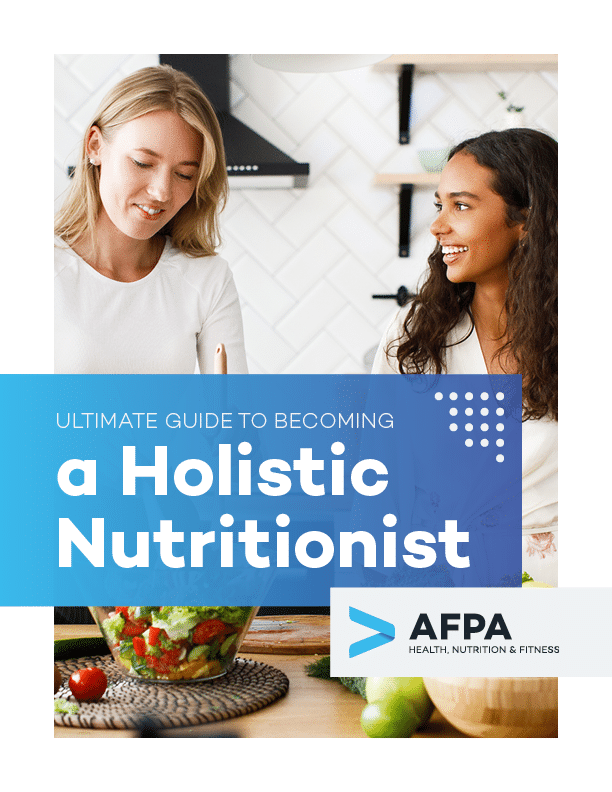With the media, countless “medical” websites, and everyone self-diagnosing, there are a million misconceptions out there about nutrition, health, and weight loss.
Nutritionists hear about these falsehoods every day, and they can’t help but shake their heads at all the crazy stuff that people will believe. In this article, our goal is to debunk some of these theories and show you that nutrition and weight loss aren’t as hard as you think if you’re following the right formula.
You need to detox all the time.
One of the biggest crazes right now is detoxing. You’ve got detox drinks, coffee, soda, teas, juices, and more. Registered dietician nutritionist Stacie Ellis explains that the body already detoxes itself using the kidneys and skin.
Part of the reason why people feel like cleanses and detoxes work so well is that they physically feel better as a result of the detox; it has nothing to do with their consumption of the drink.
Anyone who claims to experience results from consuming a detox beverage has likely made other changes in their life that contribute to that success.
Detoxing is okay as long as it is not occurring in excess or attempting to replace other vitamins and nutrients you need.
Carbs make you gain weight.
Ellis says that not all carbs are bad. She says that different combinations of increased protein, carbs, and fats can lead to weight loss. Many have heard of the ketogenic diet, and a lot of the fats you consume on this diet are carbs in their own way.
All herbs are safe.
As with most supplements you can buy over the counter, a lot of herbs are not FDA approved, meaning there is no scientific research or proof that they can do anything for your health. Ellis says that mislabeling is common with these herbs, and just because it says it’s “natural” doesn’t mean it’s safe.
She goes on to say that medications like aspirin are considered natural because of their origins, but many wouldn’t consider them that way. In reality, aspirin is more natural than some of these herbs we take and think they’re helping us live a healthier life.
It’s important to always seek professional help before taking a herb off a shelf and consuming it. Don’t follow a book, website, or guide you received.
Vegan is always better.
While vegan does have its benefits, Ellis says that it’s all about balance and finding the right nutrients for your body. Many people who are vegan do not receive the right amount of nutrients. One thing they don’t lack is protein because it is available everywhere.
The funny thing is, many people think that vegans lack protein because they’re not consuming animal protein. That’s not true because many nuts, legumes, gourds, and other vegetables contain a high amount of protein.
It’s all about balance. But it’s most important to understand that just because you call yourself a vegan, it doesn’t mean you’re healthier than someone who is eating meat.
Saturated fat is bad for you.
We’ve attacked saturated fat for decades linking it to heart issues, but it’s important to understand that saturated fats are a critical part of the body’s function. The problem is that sugar is the leading cause of most of these heart diseases that we linked fat too.
The solution is to incorporate saturated fat into your diet using the right sources. Ghee is a great alternative to oils and butter, which contain high amounts of bad fat. Both ghee and coconut oil are linked to weight loss as they offer energy from medium-chain fatty acids that help burn other fats.
All fish are healthy.
Speaking of fish, this is where everyone’s mind runs to when they think of a healthy protein. Fish is rich in omega-3s, and it’s an important part of your diet, but you need to make sure you’re choosing the right fish from the right sources.
Mercury poisoning is a concern due to farmed fish, and Dr. Axe actually believes that eating tilapia is worse than eating bacon. How scary is that? Tilapia is associated with inflammation, and there is a poor balance of omega fatty acids, which becomes a problem for those with arthritis, heart disease, and autoimmune diseases.
The solution to this problem is choosing the right type of seafood. You should never eat tilapia, cod, caviar, eel, farmed salmon, swordfish, and a variety of others. It’s crucial that you only purchase sustainable and uncontaminated fish products.
Some examples include wild-caught Alaskan salmon, Atlantic mackerel, Albacore tuna, and black cod from Alaska and the Canadian Pacific.

Get Your Free Guide to Becoming a Holistic Nutritionist
Learn about the important role of holistic nutritionists, what it takes to be successful as one, and how to build a lucrative, impactful career in nutrition.
Eating more smaller meals stimulates the metabolism.
Oh yes, frequent snacking and eating throughout the day help you to digest faster, which leads to weight loss. The fact is, this simply isn’t true.
Dr. Axe says, eating all the time doesn’t help your metabolism, and it may even interfere with burning fat. Intermittent fasting allows the body to burn more fat, but it’s crucial to realize that it takes around 12 hours for this to happen.
So, if you’re eating small meals every three hours, you’re not doing yourself a favor. You’re actually putting off the fat-burning process.
A better solution is to give intermittent fasting a try and have a set schedule for when you’ll eat and how much you’ll have. Skipping breakfast and eating between the hours of noon and 8 pm is the best policy.
All sugar is bad.
Refined sugar is your enemy, but all sweet foods do not contain refined sugar. Natural sugars have great health benefits that you want. Our bodies need these nutrients to survive, but instead, we rush out to buy artificial sweeteners, which do nothing for us.
Dr. Axe recommends using natural sweeteners as an alternative to sugar but don’t get carried away with them. He’s talking about coconut sugar, raw stevia, and honey as some of the great options to refined sugar that we often overlook.
There’s some magic equation to weight loss.
Registered dietician Joy Dubost says:
“Unfortunately, there is no magic equation or straightforward formula for losing weight. I think this myth has staying power because it allows people to focus on cutting calories with the hope of accomplishing a weight-loss goal in a short amount of time. However, it’s a false hope that promotes unrealistic expectations.”
She wants us to understand that our caloric intake and weight-loss goals don’t directly relate to each other. It’s not as simple as cutting calories and losing weight. One person could cut their daily caloric intake by 500 and experience no weight loss. Another person could raise it by 100 and lose 25 pounds; it’s not that linear.
Skipping meals helps you lose weight.
We’ve talked about this a little, but let’s get a different perspective. Registered dietician Brigitte Zeitlin tells us many people believe they can simply put off eating throughout the day, and they’ll magically lose weight. She goes on to say:
“This plan always backfires and never leads to healthy, maintainable weight loss. That’s because when we don’t have enough food during the day, the body’s metabolism slows down to conserve energy, so you’re actually burning fewer calories than you usually would.”
As you can likely see, it’s so much more complicated than it seems. You need to maintain a healthy balance in your life if you want to hit your weight-loss goals. Trying to shortcut your way to success will never end well.
Coffee is bad for you.
Some of us are nothing without our morning cup of coffee, and some of us need it throughout the entire day. While you can develop a dependency on the cup of joe, it’s not as bad of a habit as you would think.
Many studies show that coffee has some incredible health benefits. It can defend the body against Parkinson’s disease, improve cognitive development, and reduce the risk of depression. Once again, it’s our good old friend sugar who steps in to ruin the party.
You want to try and avoid adding sugar and cream to the coffee. Experts recommend keeping your consumption around two or three cups a day as well.
Your genes are in charge of your weight loss.
Genetics do make up a large part of your overall health, but it’s not the be-all and end-all. You can flip the script and do the right thing for your own health. A huge misconception is that certain people are doomed to obesity because it’s “in their genes.”
The science of epigenetics has proven that people are more than capable of reversing the negative traits of genetics.
Final Thoughts
As you process these misconceptions, it’s important to remember that you are always in control. Nothing is going to change your health unless you change first.

Get Your Free Guide to Becoming a Holistic Nutritionist
Learn about the important role of holistic nutritionists, what it takes to be successful as one, and how to build a lucrative, impactful career in nutrition.



